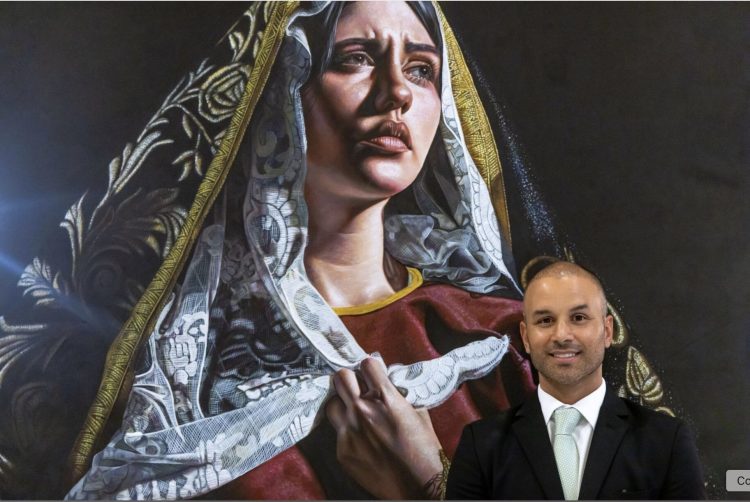William Shakespeare was a true European.
William Shakespeare has a remarkable reputation all over the world because his work is part of a wider European context. Indeed, the action of Shakespearean plays is often held on the European continent, in Spain, Italy, Austria and France; in Denmark in Helsingor, with Hamlet; in ancient Rome, with Julius Cesar; in the Scottish Highlands with Macbeth; in Athens with A Midsummer Night’s Dream; in Verona with Romeo and Juliet; in Messina with Much ado about Nothing.
Great Britain celebrated the 400th anniversary of the death of William Shakespeare last April. Thousands of devotees and enthusiasts came from around the world to Stratford-upon-Avon, birthplace of the playwright, to partake in the celebrations. During his recent official visit to London, Obama enjoyed some passages from Hamlet in the historical theater of the author, The Globe, rebuilt in the 1990, as in Shakespeare’s time, on the banks of the Thames.
This article endeavors to somewhat refresh our knowledge of Shakespeare, whose works are known worldwide and are constantly interpreted.
Born on 23rd April of 1564, the famous playwright died on the 26th April 1616, at the age of 52 in Stratford-upon-Avon, leaving behind him collected works of great magnitude which were subsequently translated into dozens of languages, adapted to the cinema and to music.
Little is known of his life which has given rise to countless legends and myths. His work is rich and varied, however very few fragments of his work, such as manuscripts, nor any hand-written documents, are to be found, some aspects of his life are unclear and left to speculation. Some claim he never existed ; his name was used as alias by writers who would not wish to identify themselves ; in the XIXth century, speculation developed that his work may have been written by the philosopher Francis Bacon (1561-1626), under the signature of Lord Bacon of Verulam. Theories about his identity continue to flourish clashing with each other.
He lived in troubled times when Protestantism had been instated as the state religion by King Henri VIII and tensions were high between Protestants and Catholics. According to some researchers, Shakespeare could have hidden his Catholic belief. Shakespeare’s identity is obscure : was he a Catholic, or a Protestant, Jewish or even a Freemason? Confusion over his identity persists to this day.

During this period of political and religious disturbances, Shakespeare had to hide, he was extremely careful knowing that expressing a personal opinion was dangerous. The playwright, Christopher Marlowe (1564-1593), for example, had openly expressed his opinions, which led him to his untimely death, stabbed at age 29. So Shakespeare was hiding behind his characters and never gave his own opinion, his characters speak for him.
Shakespeare’s works have been performed worldwide. Famous writers like Henry James, the psychoanalyst Sigmund Freud, influenced by the playwright, helped spread Shakespeare’s fame. Hamlet had an immense influence in Germany. Voltaire spread his fame and name on the European continent. The themes of his dramas have influenced European literature during the following centuries. For example, Honoré de Balzac’s (1799-1850) “Le Père Goriot” in the «Human Comedy» took its inspiration from Shakespeare’s King Lear. The work of Leonard Bernstein (1918-1990) was also inspired by Shakespearean themes, including love, loyalty, betrayal, as, for example, in Porgy and Bess. Americans harbor an enormous admiration for him. Shakespeare is, for them, a mythical character. With this spirit, they even rebuilt the Globe Theatre on Broadway, in New York.
The popularity of Shakespeare is due to many factors.
He understood human kind, its triumphs, sorrows, deepest aspirations, innermost emotions, all of which he captured in his plays. The complexity of the characters has drawn the admiration of the players and the public alike through time.
 Quotations from his work are famous. Here are a few : The seven ages of man ; Shall I compare thee to a summer’s day? ; We band of brothers ; What’s in a name? ; Now is the winter of our discontent ; If music be the food of love ; Beware the ides of March ; We Are Such stuff as dreams are made on ; Something is rotten in the state of Denmark ; To be, or not to be: that is the question.
Quotations from his work are famous. Here are a few : The seven ages of man ; Shall I compare thee to a summer’s day? ; We band of brothers ; What’s in a name? ; Now is the winter of our discontent ; If music be the food of love ; Beware the ides of March ; We Are Such stuff as dreams are made on ; Something is rotten in the state of Denmark ; To be, or not to be: that is the question.
He was also an extraordinary storyteller, writing in all genres: comedy, tragedy, history, melodrama, poetry, adventure, romance and fairy tales. These works transcend time and cultures.
The “Bard of Avon” , as he was also known, borrowed the themes of his plays from tradition, inspired by existing works, by legends or based on ancient texts. Brought up in the classical culture, he had studied Plutarch, Ovid, Montaigne, acquiring from their works his ideas and thoughts on politics, on philosophy and on poetry.
He was attracted to the theater at a time when it was considered immoral. Shakespeare’s plays of which the authentication is indisputable are gathered in the «Shakespearean canon» in the order of publication. Regarding the works of which the authorship is unclear, critics have classified them as «problem plays.»
It was common practice at that time to write in cooperation with other writers, or with the personal contribution of the actors. Shakespeare worked in this way also. It is often difficult to determine what the original text actually was, as the edited texts were transcribed from memory after the performance on stage, or from the manuscripts of the writer or the copy of the director. To make matters even more difficult, Shakespeare himself was revising these texts years later, which added to the confusion of the publishers.
During his lifetime, he was not considered the best poet of his time. His entourage showed some distrust of him. It was during the following centuries, especially after the Elizabethan era, that a well merited tribute was paid to him.
In our times, Shakespeare’s works was often brought to the screen.
From a young age, Orson Welles harbored boundless admiration for the English playwright. For him, Shakespeare was the greatest poet of all times. This intellectual encounter between the two artists resulted in some of Welles’ masterpieces He also mastered Shakespeare’s plays on stage: Richard III, The five kings, Othello (an adaptation in Harlem, New York, with Afro-American actors), King Lear. The influence of the great playwright was felt in the film work of Welles, especially in Citizen Kane. Welles adapted to films Macbeth, Othello, Falstaff.
Recently, in 1998, the American director, John Madden, released the film Shakespeare in Love with, in the main roles, Joseph Fiennes, Gwyneth Paltrow, Judi Dench, Colin Firth, etc. Most of the characters in the movie really existed, except for the woman with which Shakespeare was supposed to have fallen in love!
Finally, it is worth mentioning others of his famous works: Anthony and Cleopatra, The Winters’s Tale, The Tempest, The Taming of the Shrew, Henry VI, Henry VIII, Richard III, The Merchant of Venice, etc.










